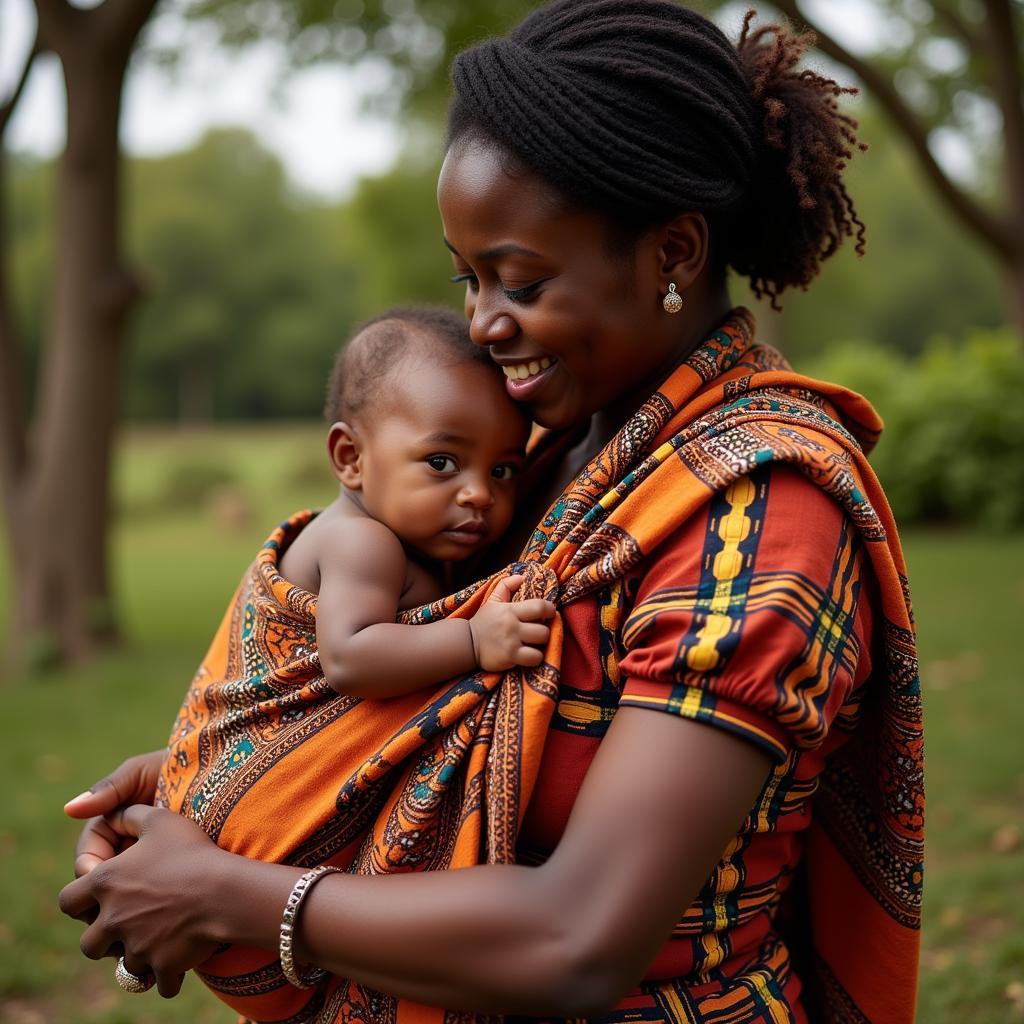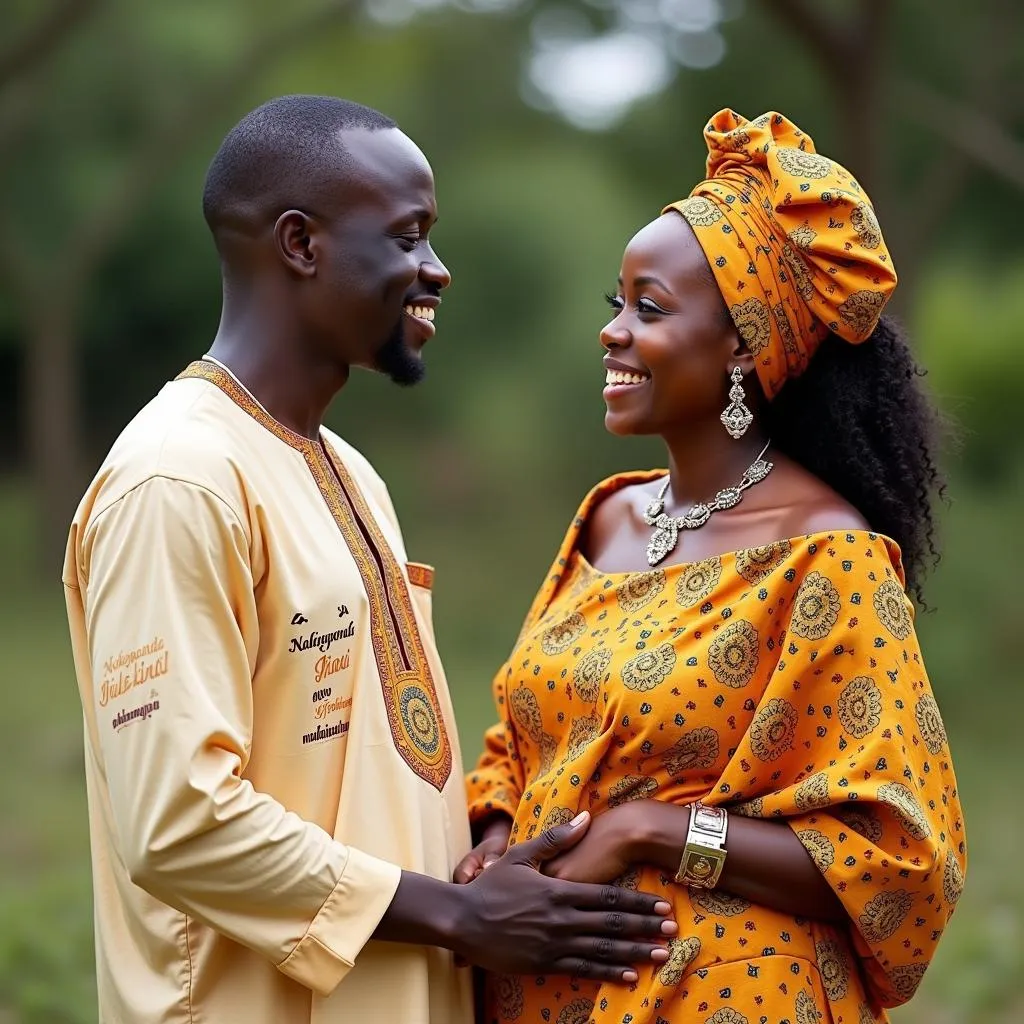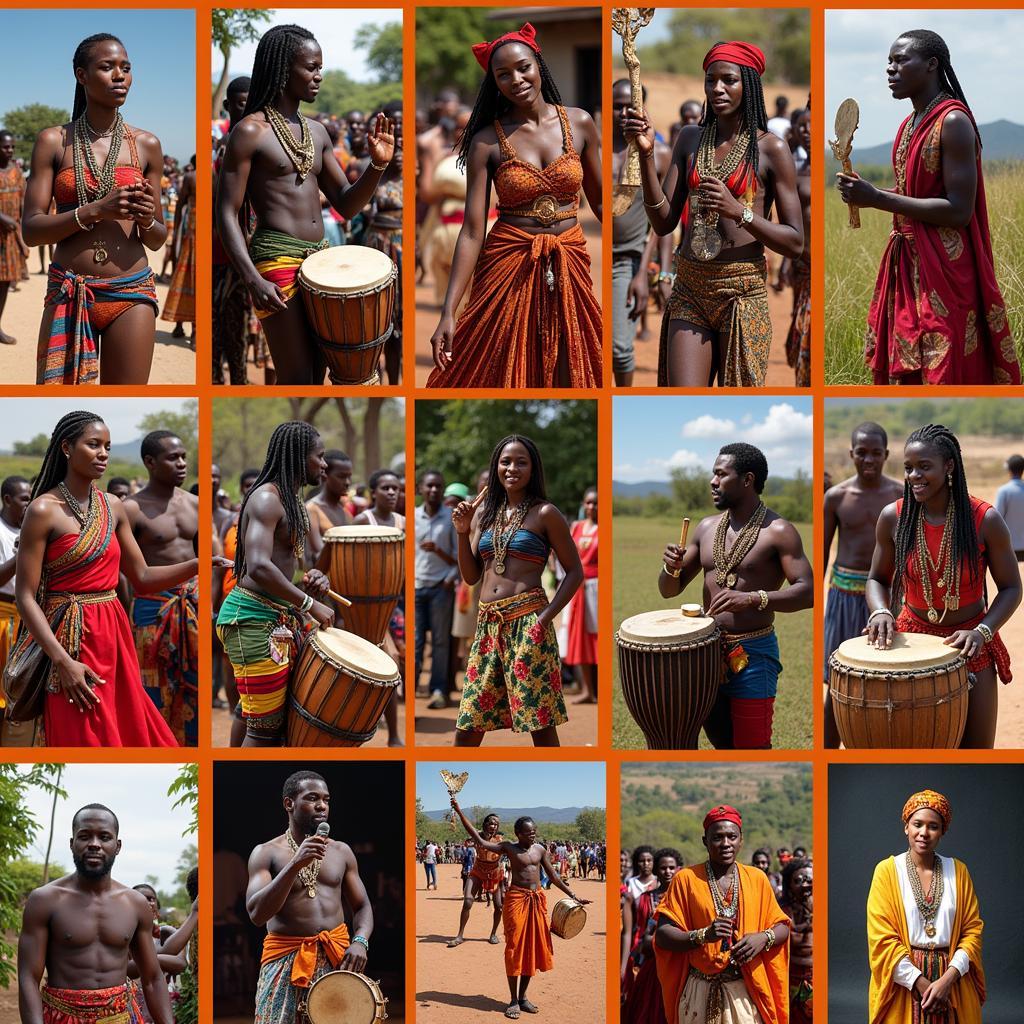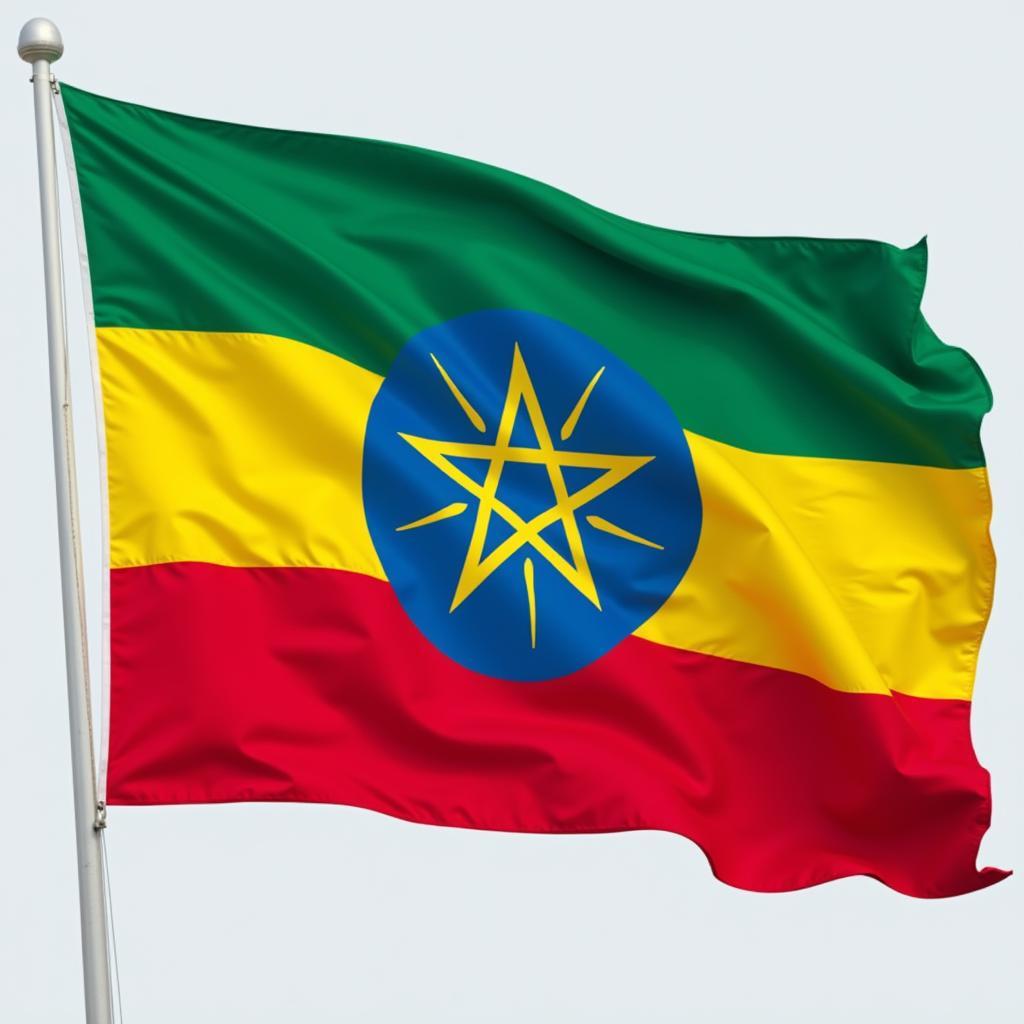African Baby Carriers: A Timeless Tradition of Love and Practicality
African Baby Carriers, also known as wraps or slings, are more than just a practical way to carry a child. They are a beautiful representation of the deep connection between a caregiver and their baby, woven into the fabric of many African cultures for centuries. From the vibrant kente cloth of Ghana to the intricate beadwork of the Maasai, these carriers are as diverse as the continent itself, reflecting the unique traditions and styles of each community.
 African Mother Carrying Baby in Wrapper
African Mother Carrying Baby in Wrapper
More Than Just a Carrier: Understanding the Cultural Significance
In many African cultures, babies are seen as a blessing, a symbol of hope and continuity. The act of carrying a baby is not simply a chore, but a privilege, a way to keep the little one close and nurture their development. It’s a deeply ingrained practice that fosters a strong bond between the baby and the caregiver, which can be anyone from mothers and fathers to grandparents and older siblings.
 Group of African Women with Babies in Slings
Group of African Women with Babies in Slings
The use of traditional baby carriers has significant cultural and societal implications. They allow women to continue their daily tasks, from farming and fetching water to trading and socializing, all while keeping their babies safe, secure, and close by. This constant physical contact helps regulate the baby’s temperature, heartbeat, and breathing, promoting a sense of security and calmness.
A Tapestry of Styles: Exploring Different Types of African Baby Carriers
Across the vast African continent, you’ll find a fascinating variety of baby carriers, each reflecting the ingenuity and creativity of its people.
-
Wraps: Often made from brightly colored fabrics like kente, Ankara, or bogolanfini, wraps are long pieces of cloth expertly tied and draped to secure the baby to the caregiver’s back or front. These wraps offer versatility, as they can be adjusted as the baby grows. You can read more about African baby wraps slings for a deeper understanding.
-
Slings: These carriers, prevalent in East African countries like Kenya and Tanzania, are typically made from animal hides or woven fabrics. They are designed to comfortably carry the baby on the caregiver’s back, leaving their hands free for other tasks. For more information on how these slings contribute to African babies walking early, you can follow this link.
-
Beaded Carriers: In Southern African cultures, intricately beaded carriers are not only practical but also serve as decorative pieces that reflect the family’s social status and heritage. These carriers are often passed down through generations, becoming treasured heirlooms.
-
Animal Skin Carriers: In some communities, especially nomadic groups, animal skins are used to create durable and weather-resistant carriers. These carriers are well-suited for long journeys and harsh climates, offering protection and warmth to the baby.
Benefits Beyond Tradition: The Practical Advantages
The enduring popularity of African baby carriers isn’t just about tradition; it’s also about the numerous practical benefits they offer.
-
Bonding: The close physical contact promotes a strong emotional bond between the caregiver and the baby.
-
Comfort: The carriers distribute the baby’s weight evenly, making it comfortable for both the caregiver and the child.
-
Convenience: They allow for hands-free carrying, enabling caregivers to attend to their daily tasks.
-
Cognitive Development: Being carried upright and close to the caregiver provides the baby with valuable stimulation and exposure to the world around them.
-
Emotional Regulation: The gentle rocking motion and the sound of the caregiver’s heartbeat can soothe the baby and promote a sense of security.
Choosing the Right African Baby Carrier: Factors to Consider
If you’re considering incorporating an African baby carrier into your life, there are a few things to keep in mind:
-
Comfort and Safety: Ensure the carrier provides adequate support for the baby’s head, neck, and back.
-
Cultural Appropriateness: Be mindful of the cultural significance of different styles and choose a carrier that resonates with you while respecting its origins.
-
Lifestyle: Consider your daily routine and choose a carrier that suits your needs and lifestyle.
-
Material and Durability: Opt for carriers made from high-quality, breathable materials that are easy to clean.
“As an expert on African culture, I’ve always been fascinated by the way these carriers represent both practicality and artistry,” shares Dr. Abena Owusu, an anthropologist specializing in African textiles. “They are a testament to the resourcefulness and creativity of African mothers and caregivers.”
Conclusion
African baby carriers are more than just a means of transportation; they are a symbol of love, tradition, and practicality. They are a beautiful reminder of the strong bond between a caregiver and their child, a bond that transcends cultural boundaries. Whether you’re drawn to the vibrant colors, the intricate designs, or the practical benefits, African baby carriers offer a unique way to connect with your baby while celebrating the rich heritage of the continent.
If you’re interested in learning more about African babys, explore our other articles for insightful information and captivating stories. You can also discover the beauty and elegance of African gown dresses, which showcase the continent’s vibrant fashion heritage.


